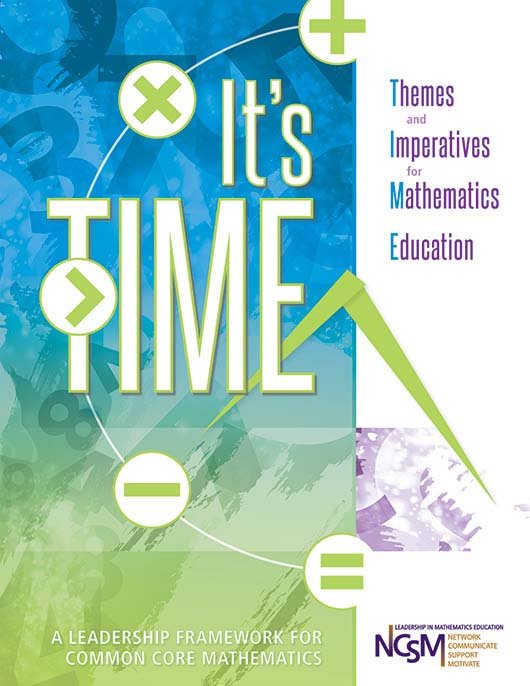Free Reproducibles
It's TIME
Themes and Imperatives for Mathematics Education
Help all students become high-achieving mathematics learners. Gain a strong understanding of mathematics culture, and learn necessary best practices to fully align curriculum and instruction with the CCSS for mathematics. You’ll explore the factors that have traditionally limited mathematics achievement for students and discover practical strategies for creating an environment that supports mathematics learning and instruction.
Benefits
- Learn the critical points in designing curriculum and instruction to effectively meet the CCSS for mathematics.
- Utilize teamwork to create a high-performing mathematics curriculum where all students achieve at high levels.
- Understand and overcome the challenges that limit mathematics achievement for all students.
- Discover how to implement the NCSM framework in a collaborative learning environment.
- Examine and improve school, district, and staff beliefs about mathematics achievement.
TABLE OF CONTENTS
Chapter 1: Overarching Themes
Chapter 2: Supportive Conditions
Chapter 3: Imperatives for Knowledge
Chapter 4: Imperatives for Instruction and Assessment
Chapter 5: Imperatives for Systemic Change
Chapter 6: Shared Productive Culture
Appendix A: Characteristics of a Standards-Based Mathematics Classroom
Appendix B: A Shared Vision of Effective Teaching and Learning of K–8 Mathematics in the Jefferson County Public Schools
Appendix C: Tools
PRINTABLE REPRODUCIBLES
Chapter 3
- Big Ideas and Understandings as the Foundation for Elementary and Middle School Mathematics
- Common Core State Standards for Mathematics
- Common Core State Standards Video Series
- Content Knowledge for Teaching: What Makes It Special?
- LearnZillion
- The Mathematics Common Core Toolkit
- New York State Mathematics Curriculum Modules for Grades P–12
- Progressions Documents for the Common Core Math Standards
- “Why Teachers’ Mathematics Content Knowledge Matters: A Summary of Studies”
Chapter 4
- Balanced Assessment
- The Charles A. Dana Center Formative Assessment Tools and Tasks
- Center on Universal Design for Learning
- Dan Meyer’s Three-Act Math Tasks
- Desmos Explorations
- Educators Evaluating Quality Instructional Products
- Emergent Math Common Core Problem Based Curriculum Maps
- Exemplars® Formative Assessment
- Illustrative Mathematics
- Figure 4.8: In-Class Formative Assessment Strategies for Student Action
- Figure 4.9: Sample Geometry Student Self-Assessment Goal-Setting Worksheet
- Inside Mathematics
- The Mathematics Assessment Project
- National Center on Response to Intervention
- National Library of Virtual Manipulatives
- National Science Digital Library Common Core State Standards for Mathematics
- NCTM Illuminations
- Partnership for Assessment of Readiness for College and Careers (PARCC)
- Smarter Balanced Assessment Consortium (SBAC)
Chapter 5
- Figure 5.1: The PLC Teaching-Assessing-Learning Cycle
- All Things PLC
- Examining Mathematics Coaching
- Inside Mathematics “Tools for Principals and Administrators”
- LearnZillion
- Math Coaching Resources
- NCSM “Coaching Corner”
- Turn on Math
Key Online Resources
Appendix C

